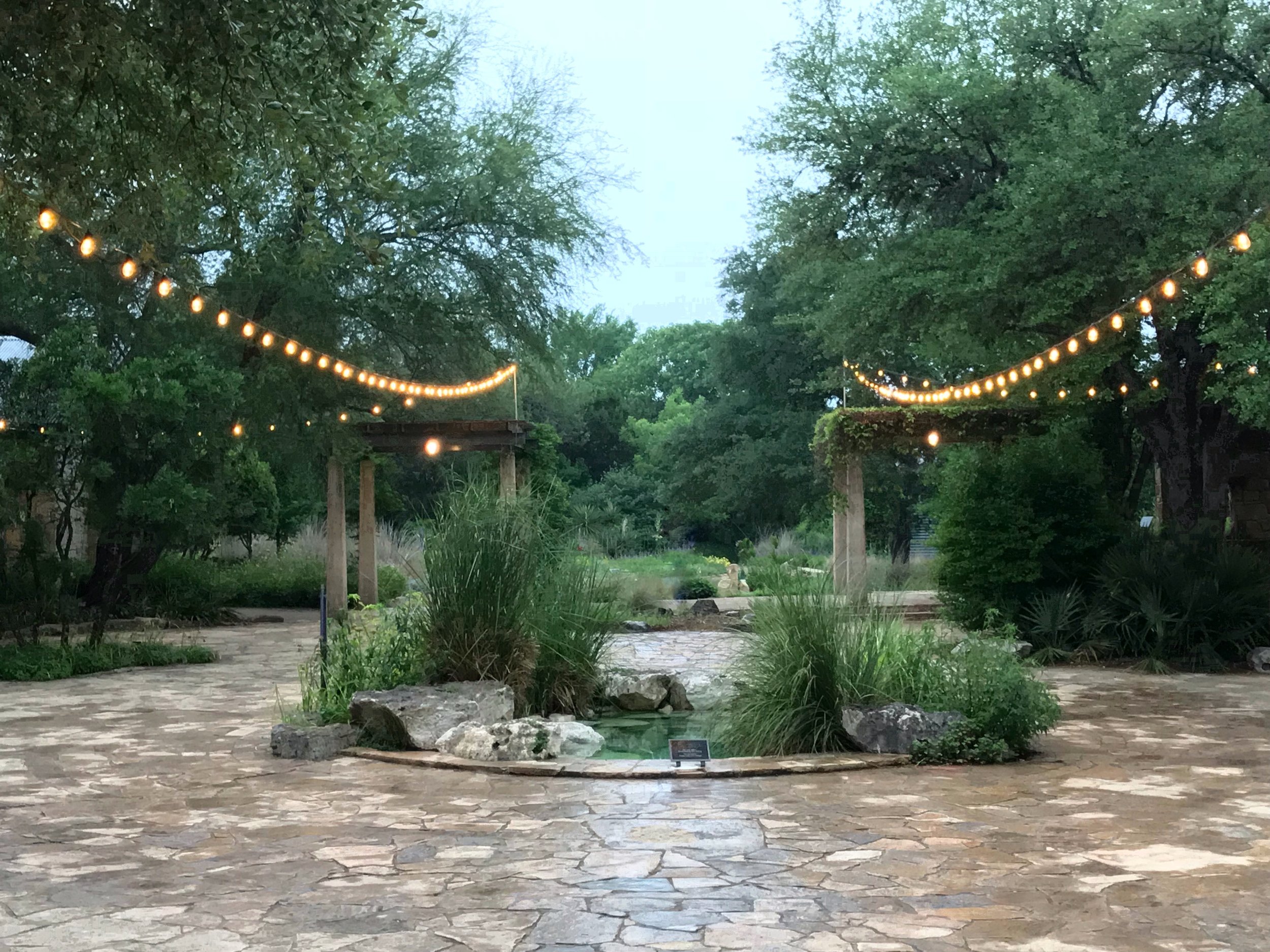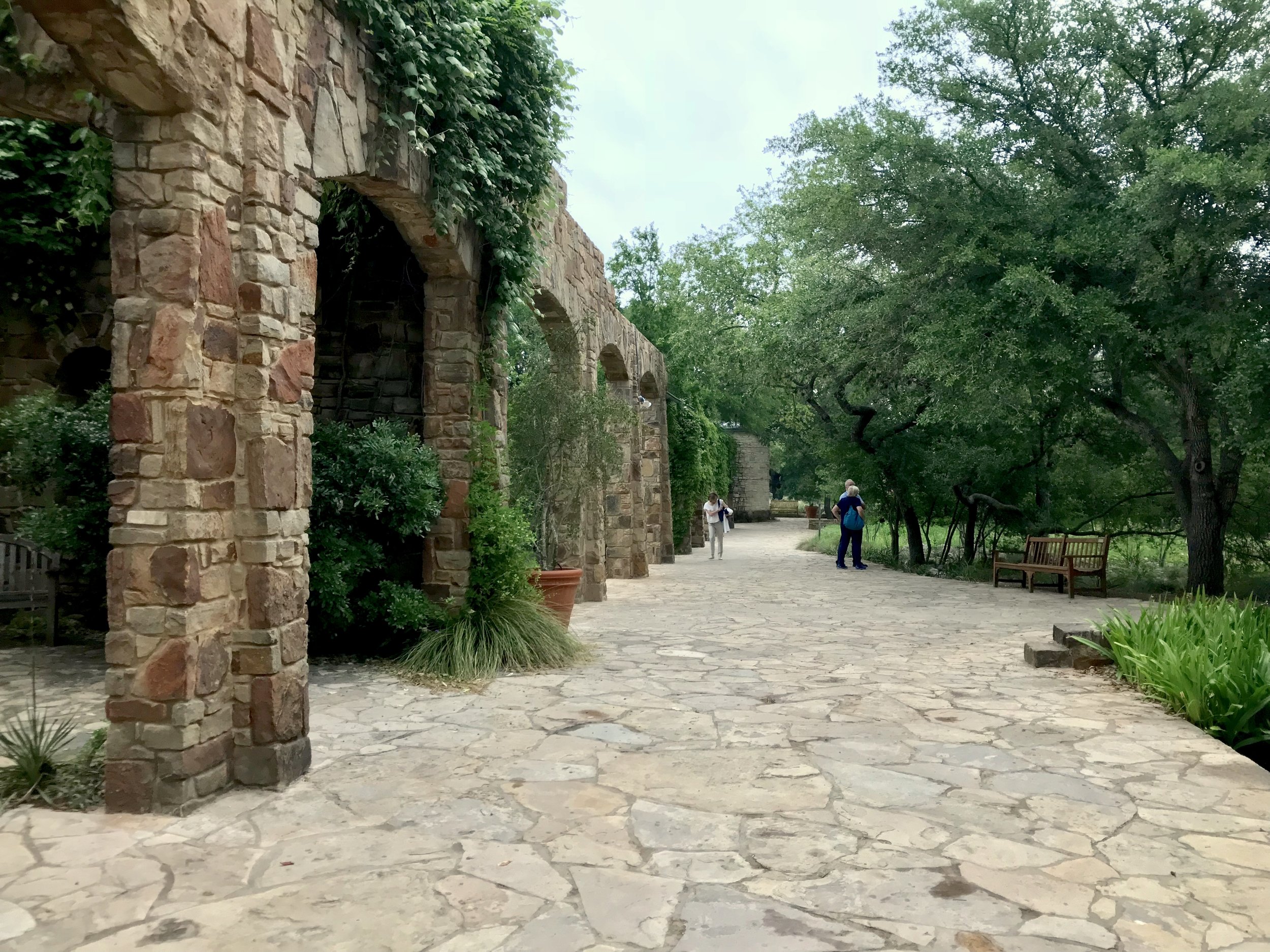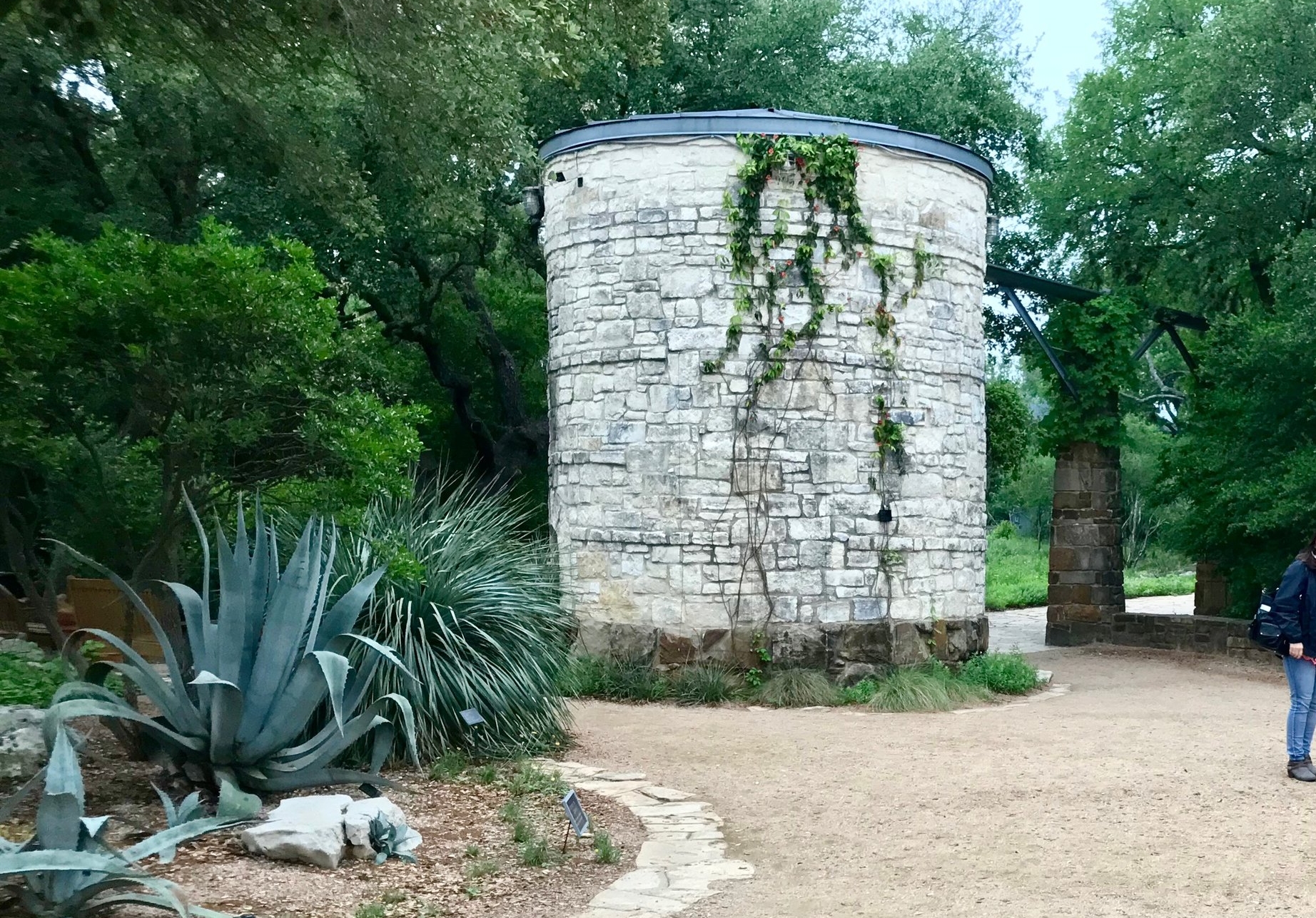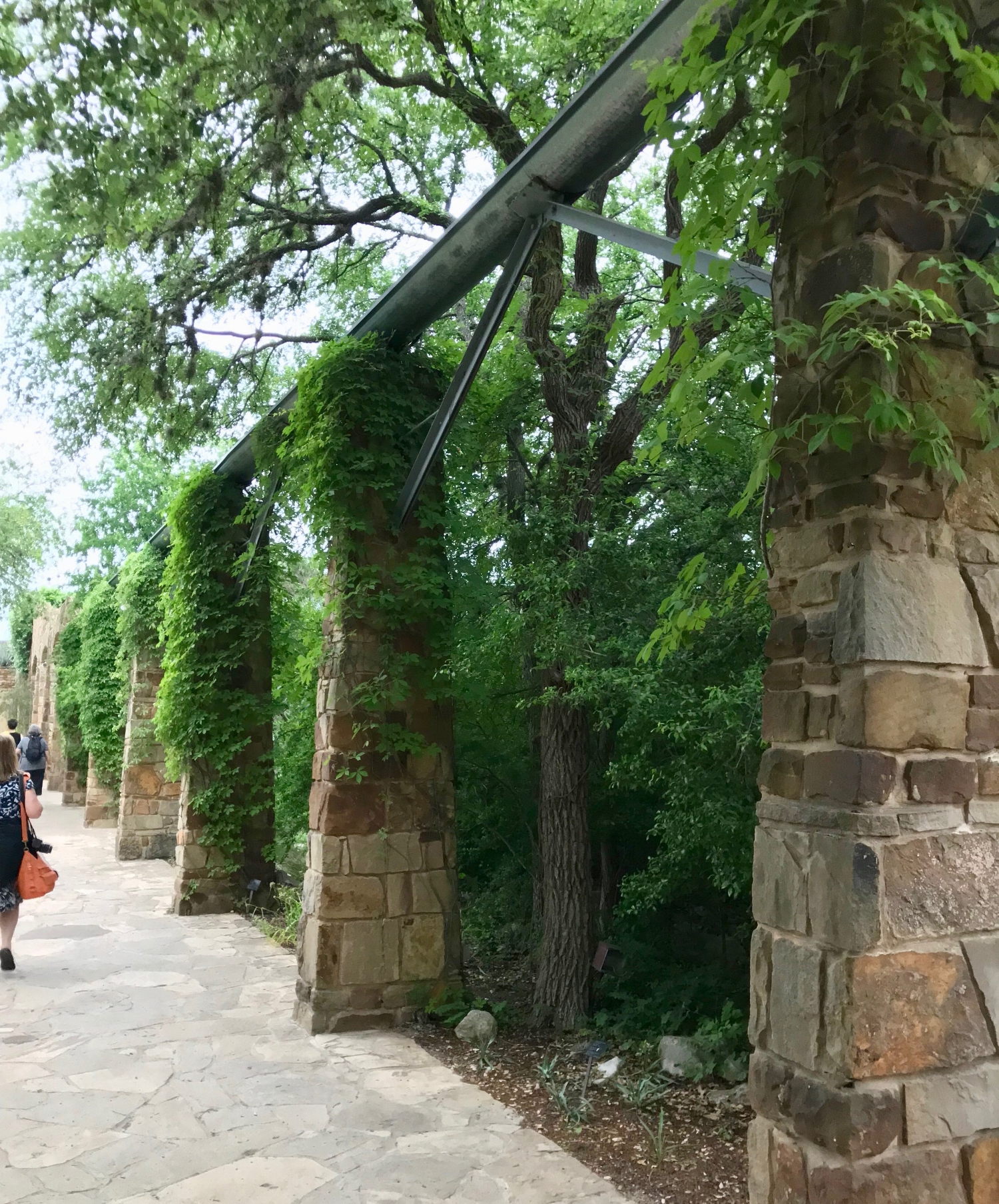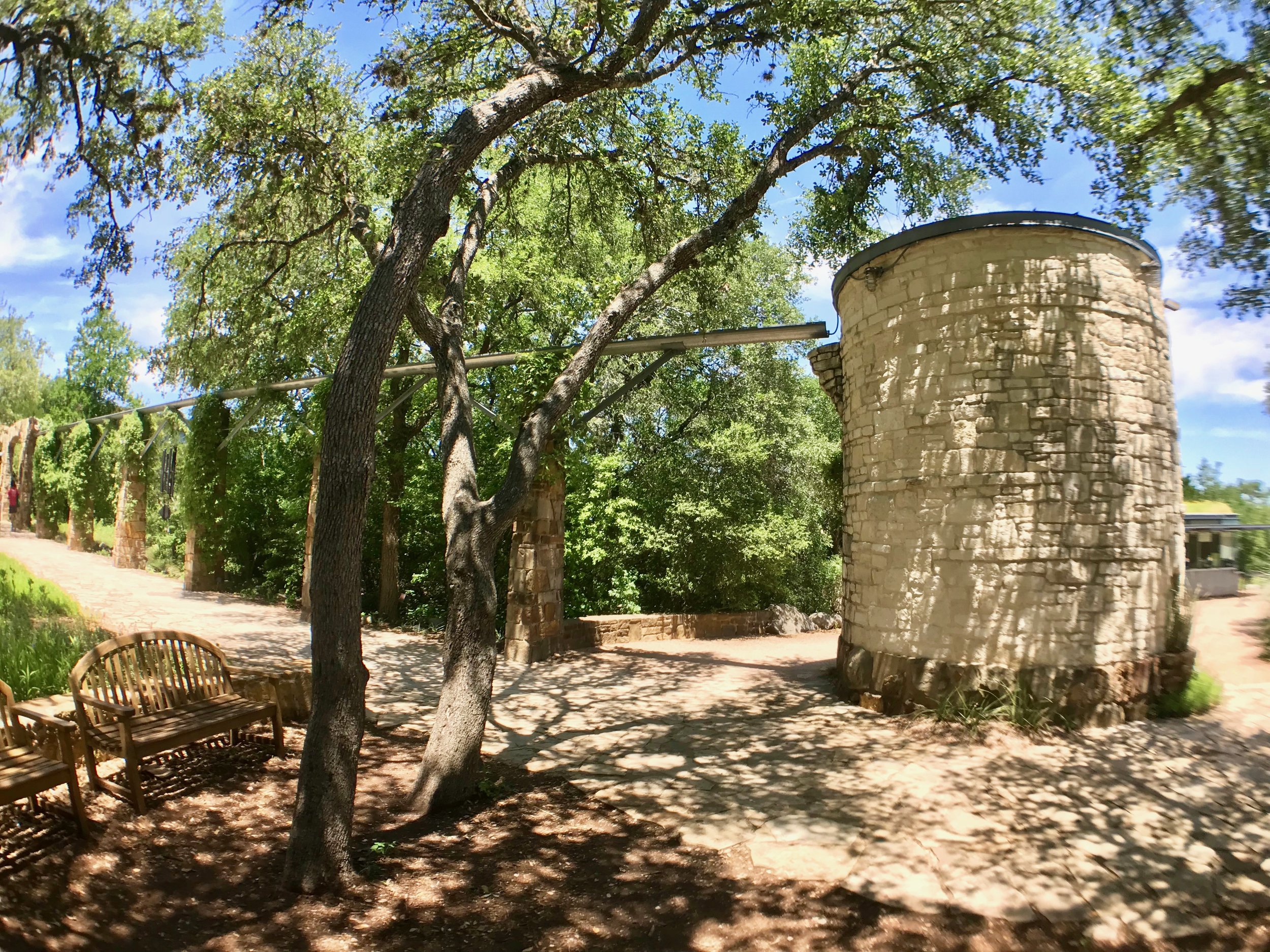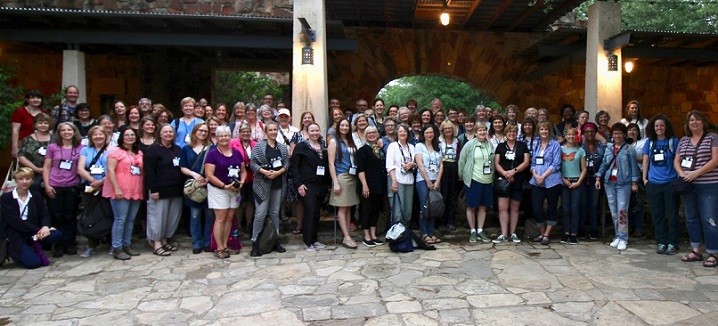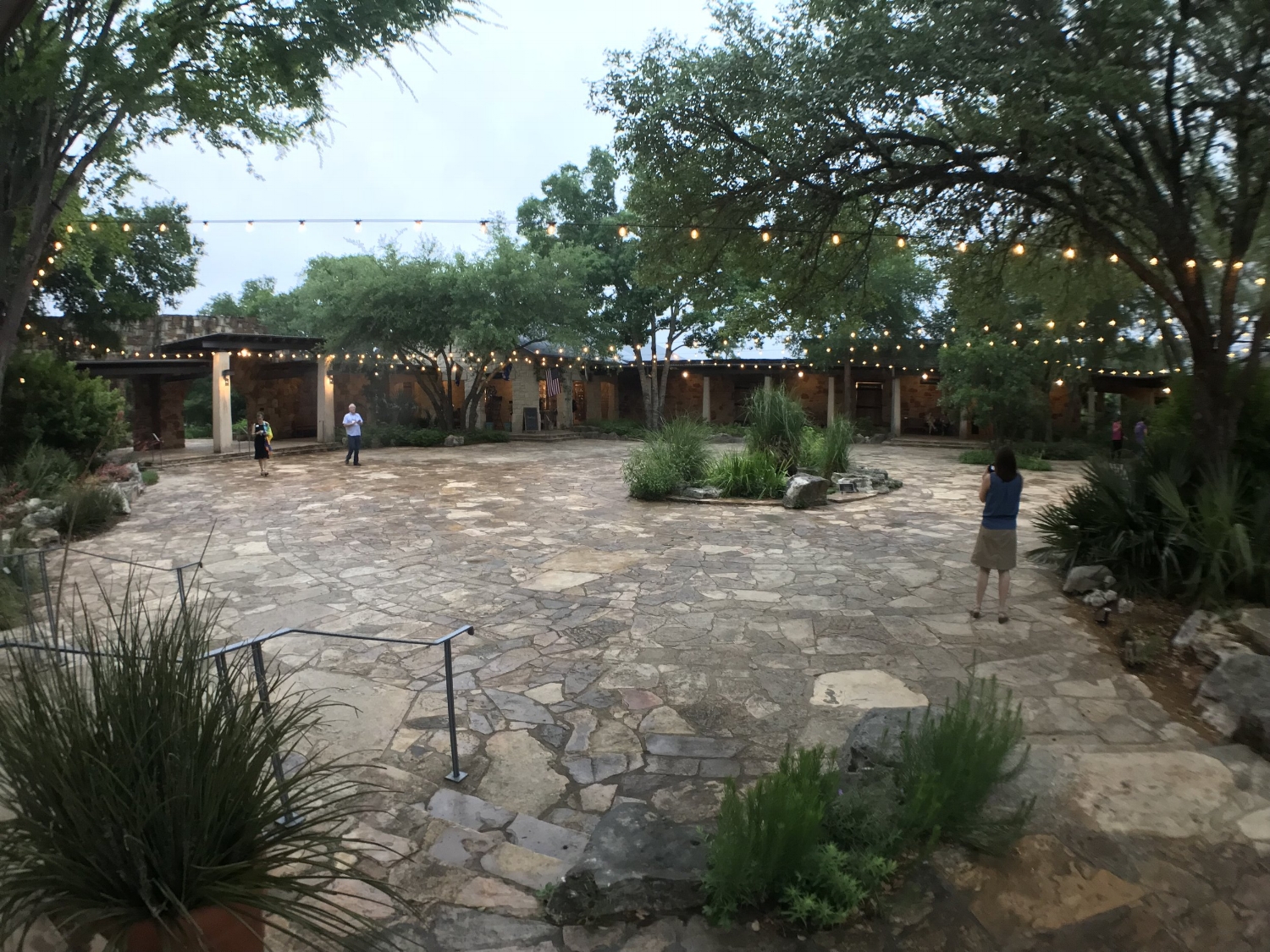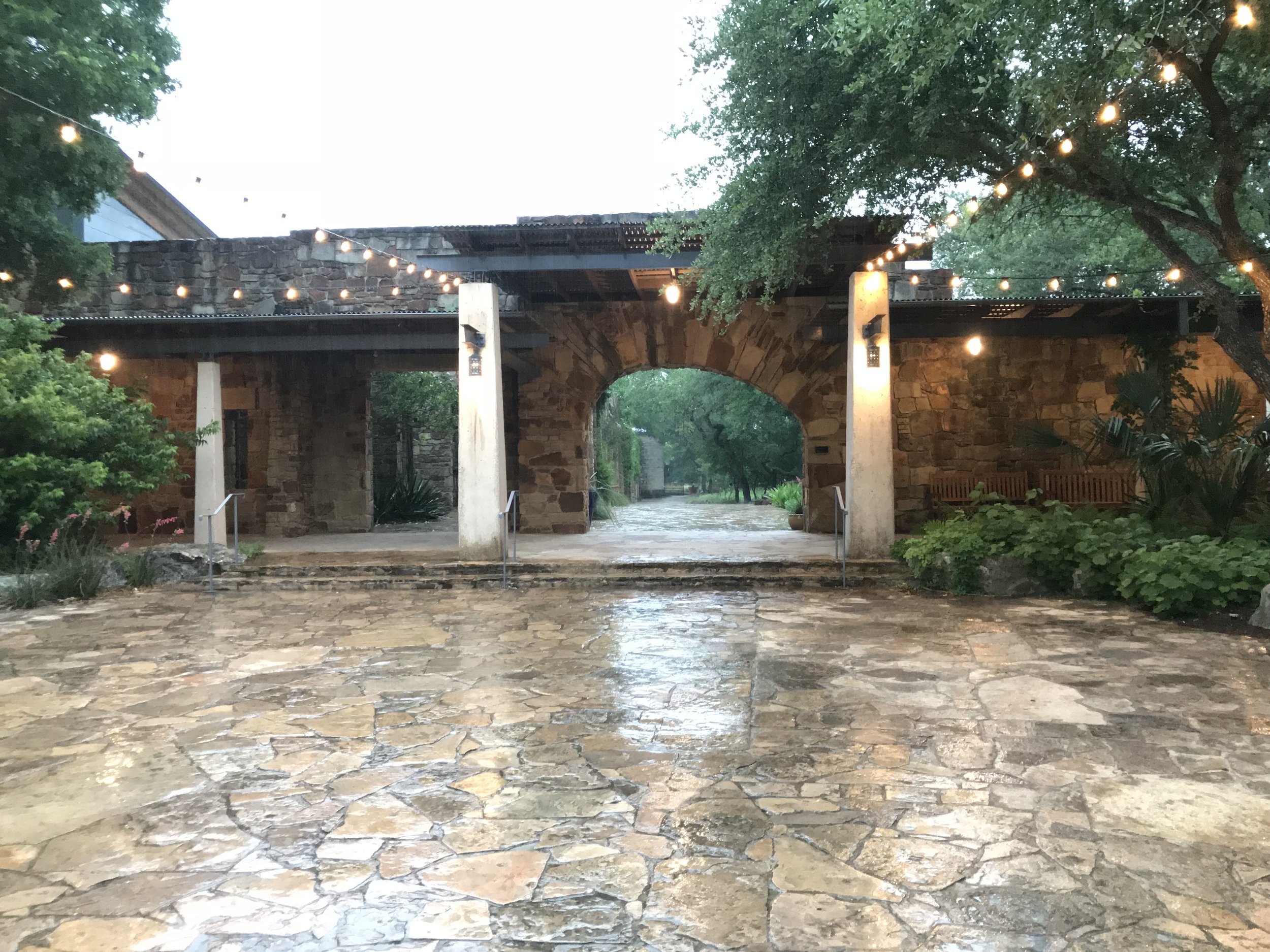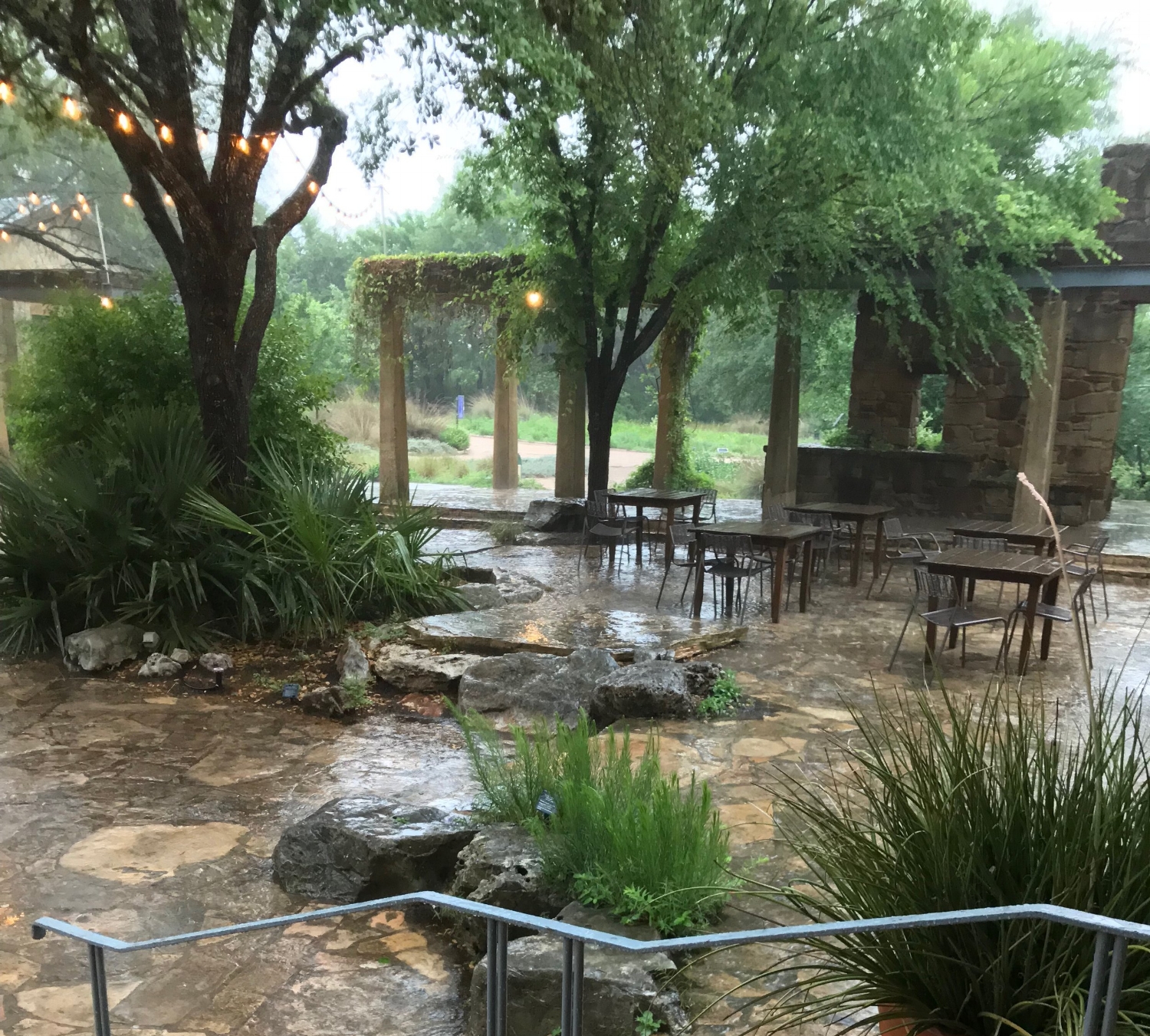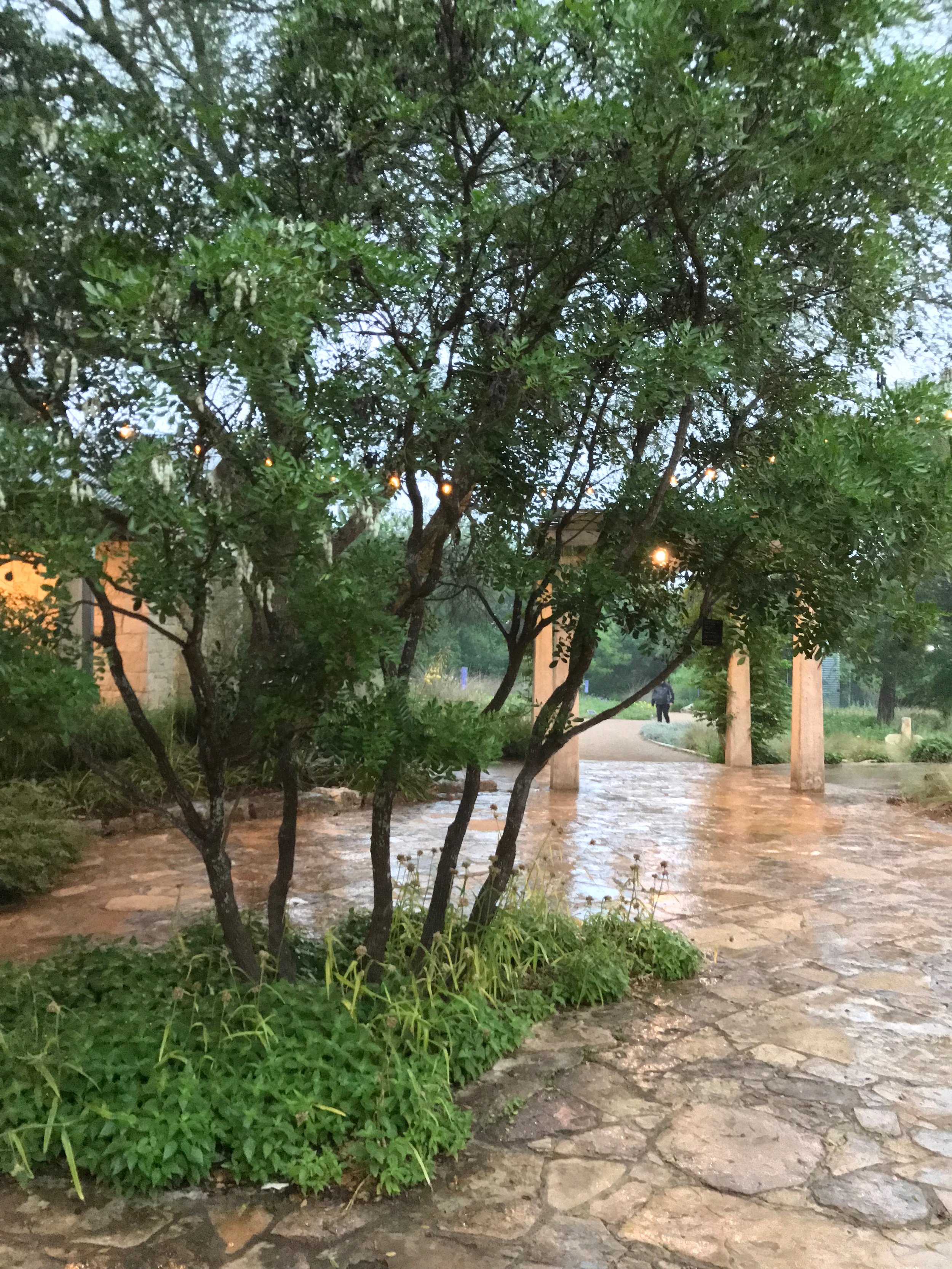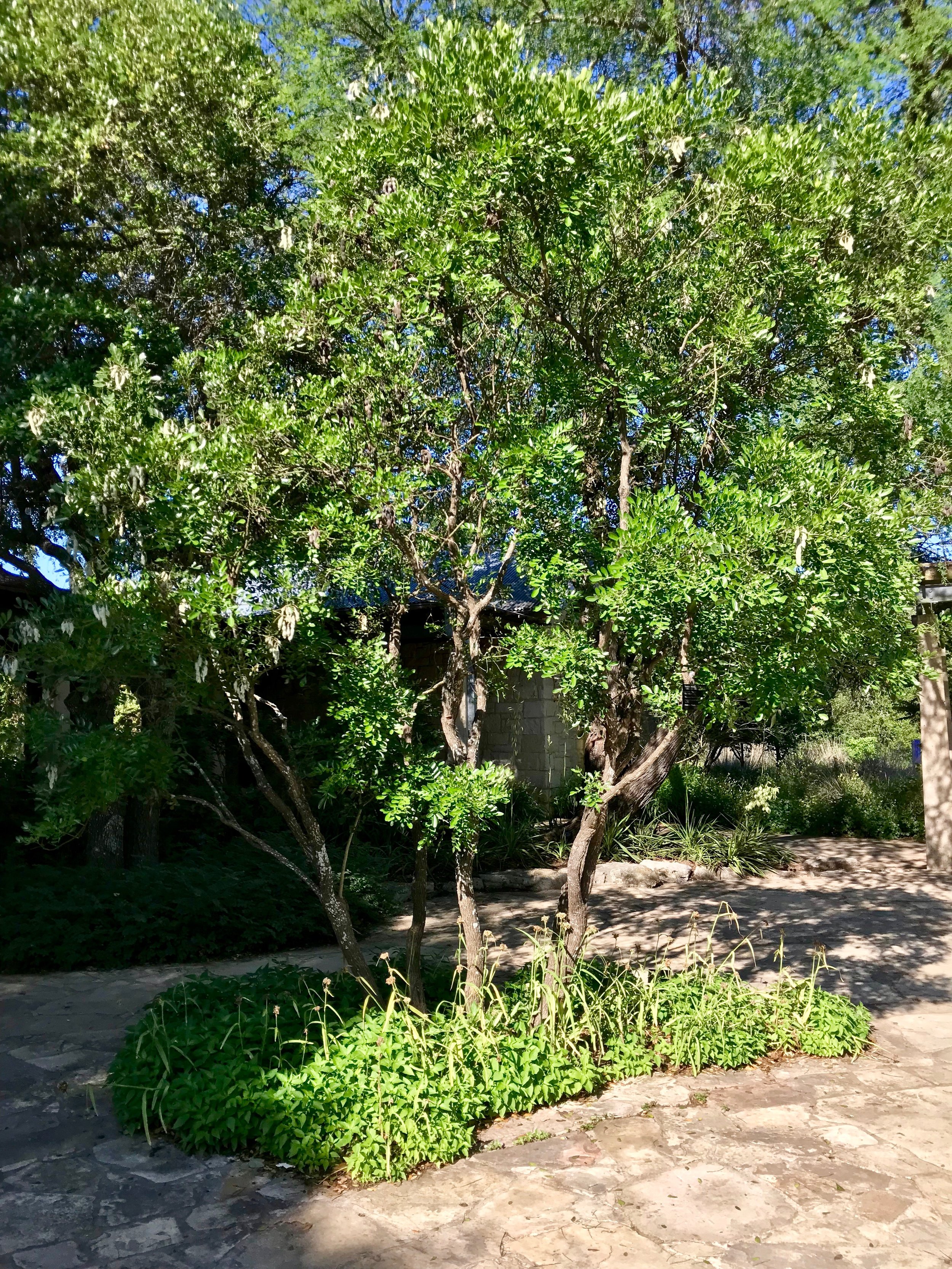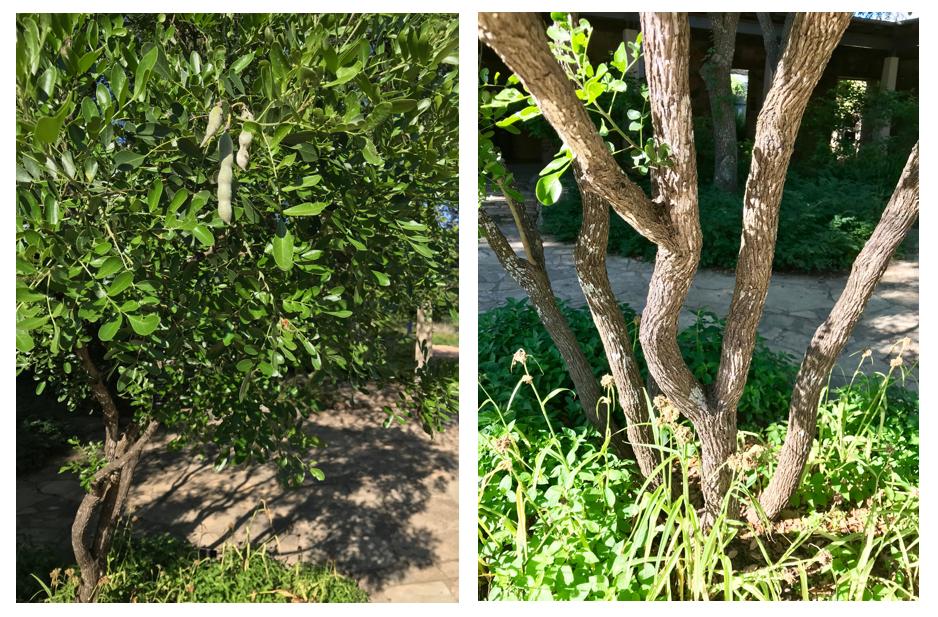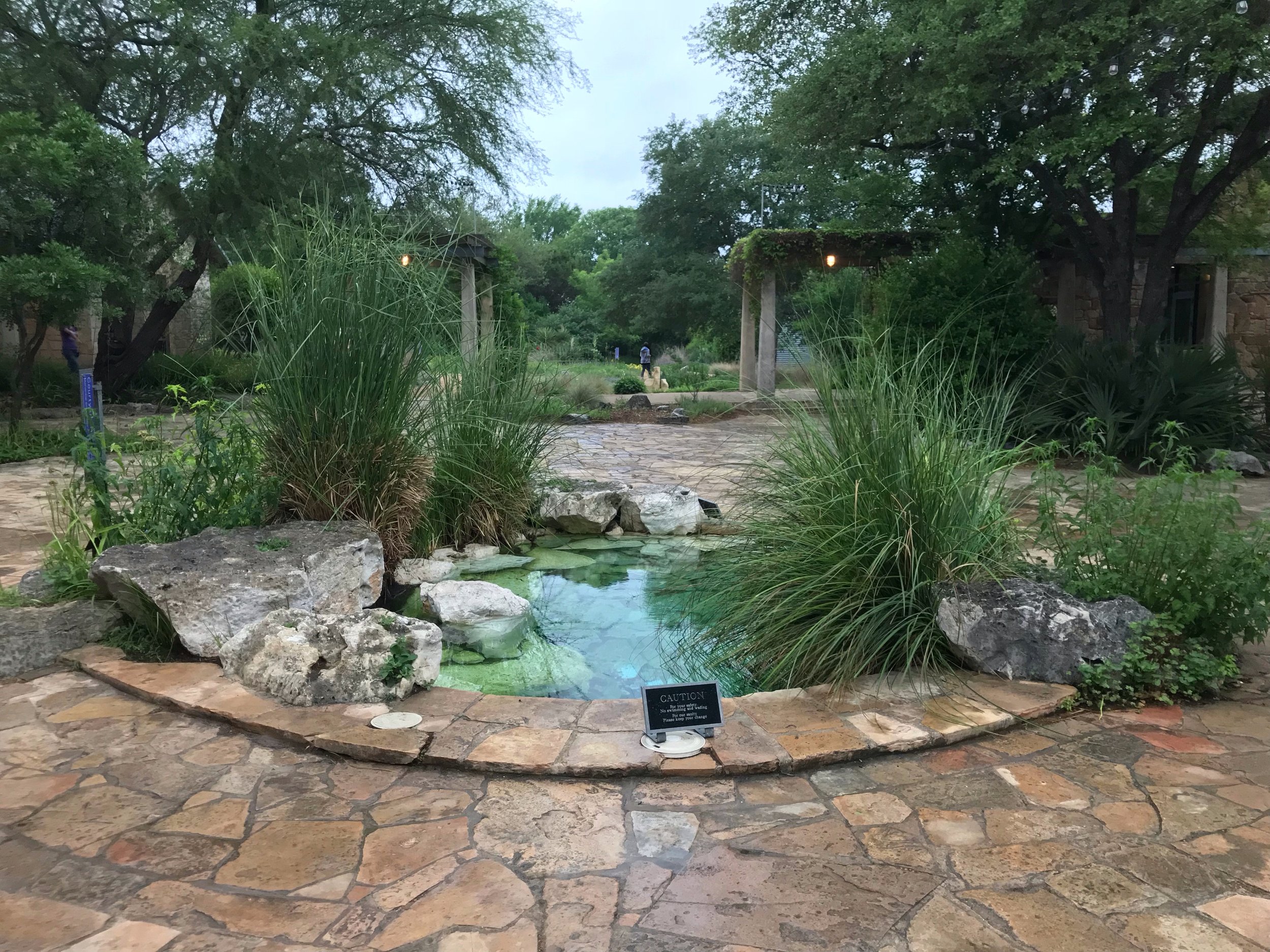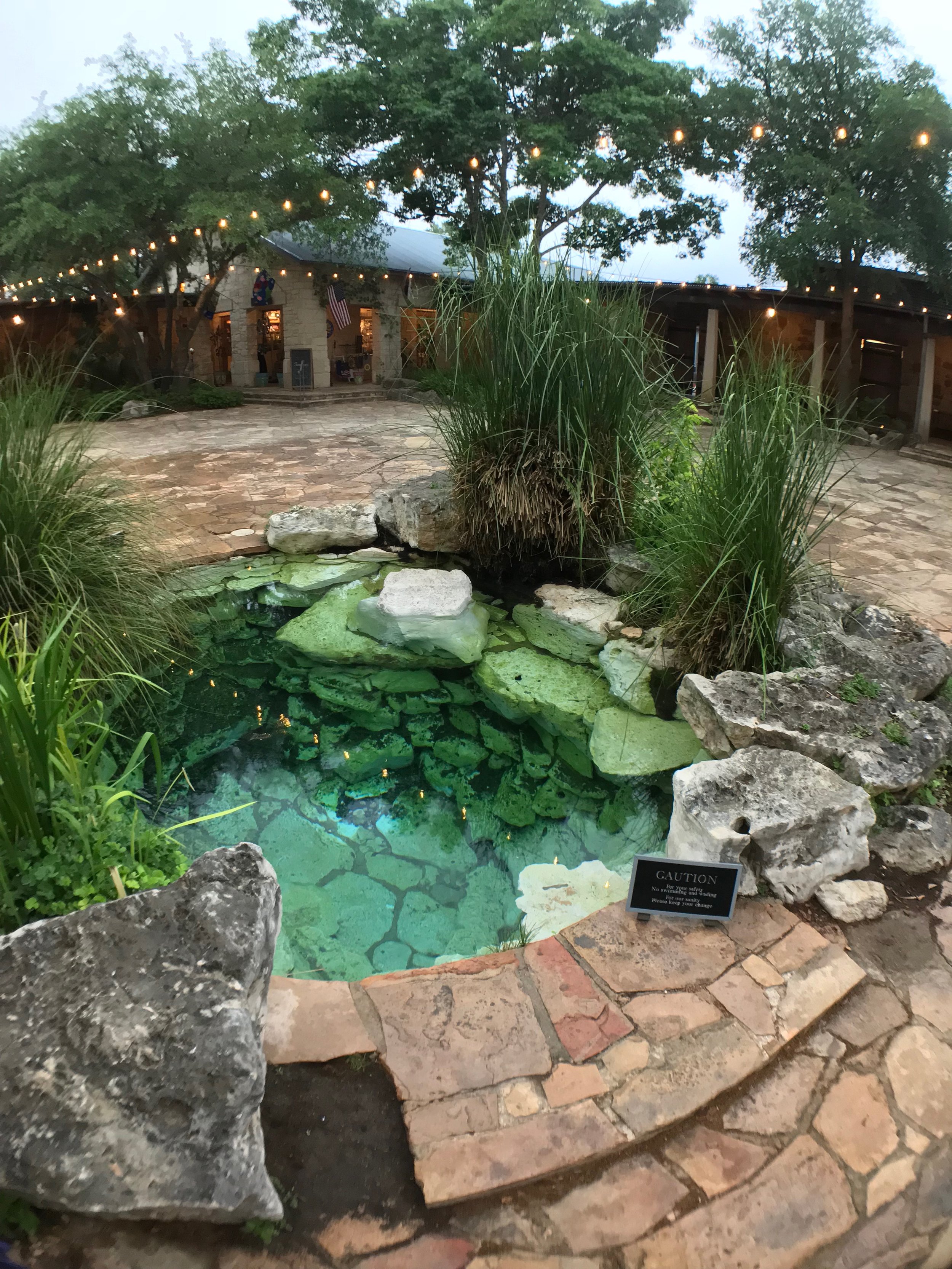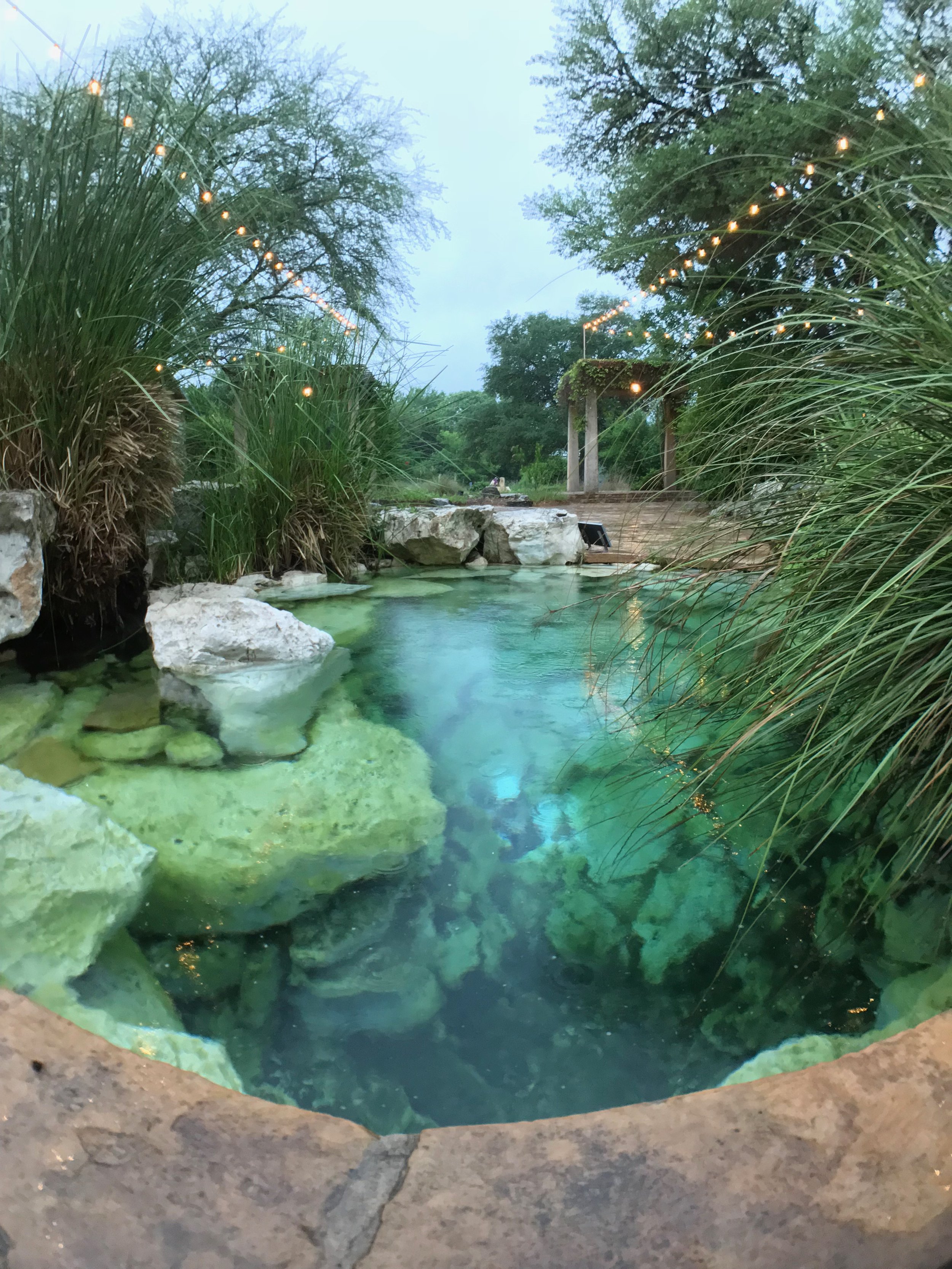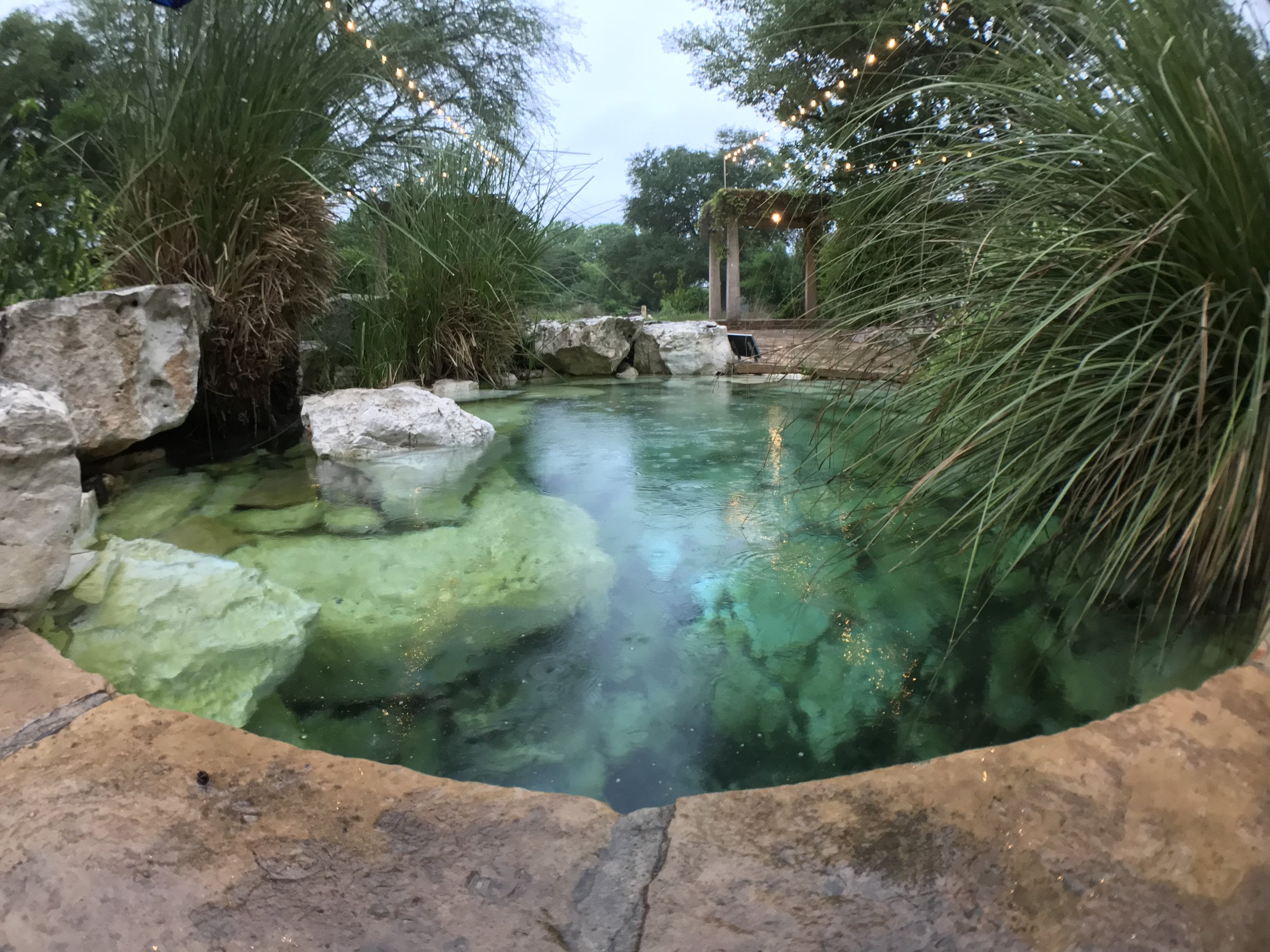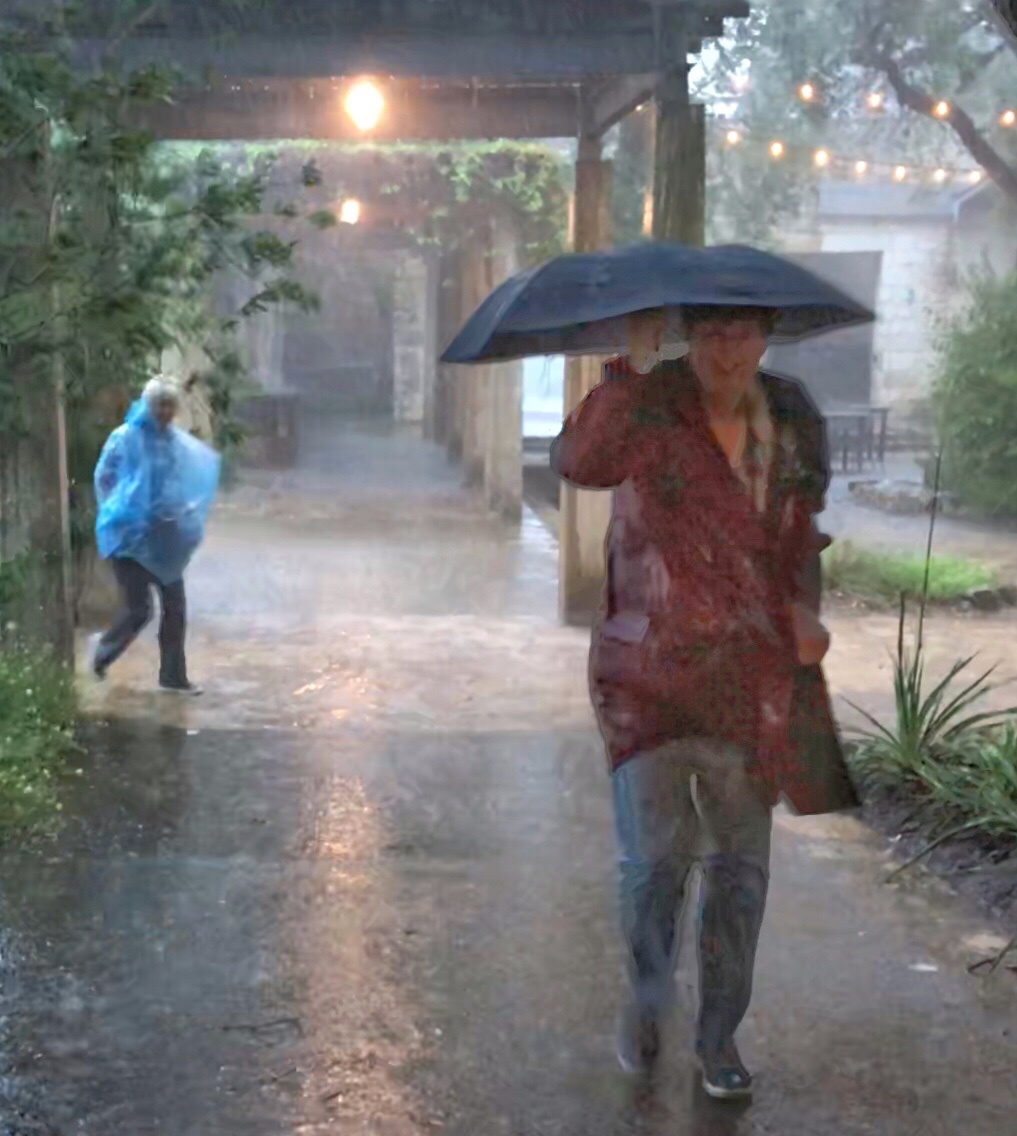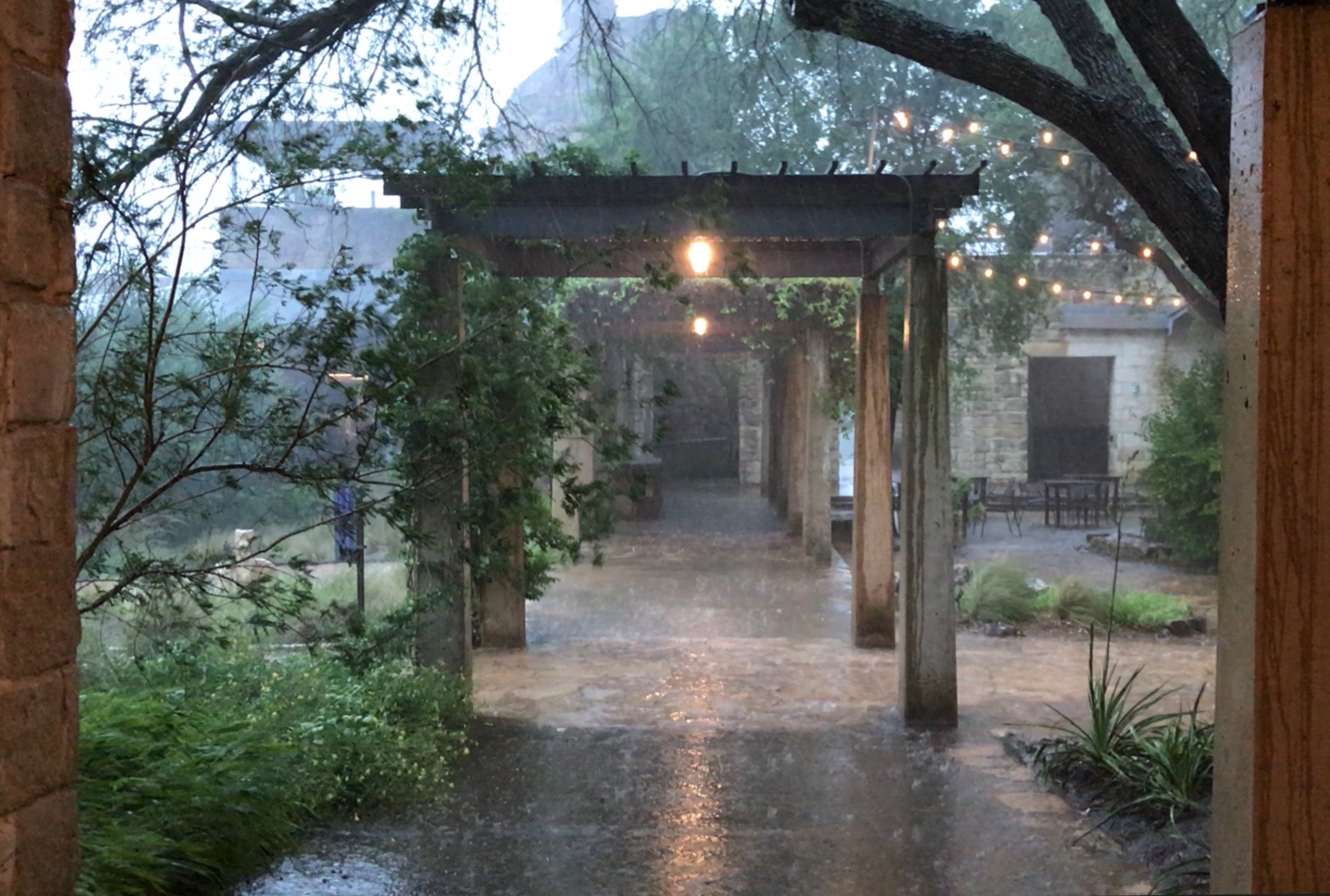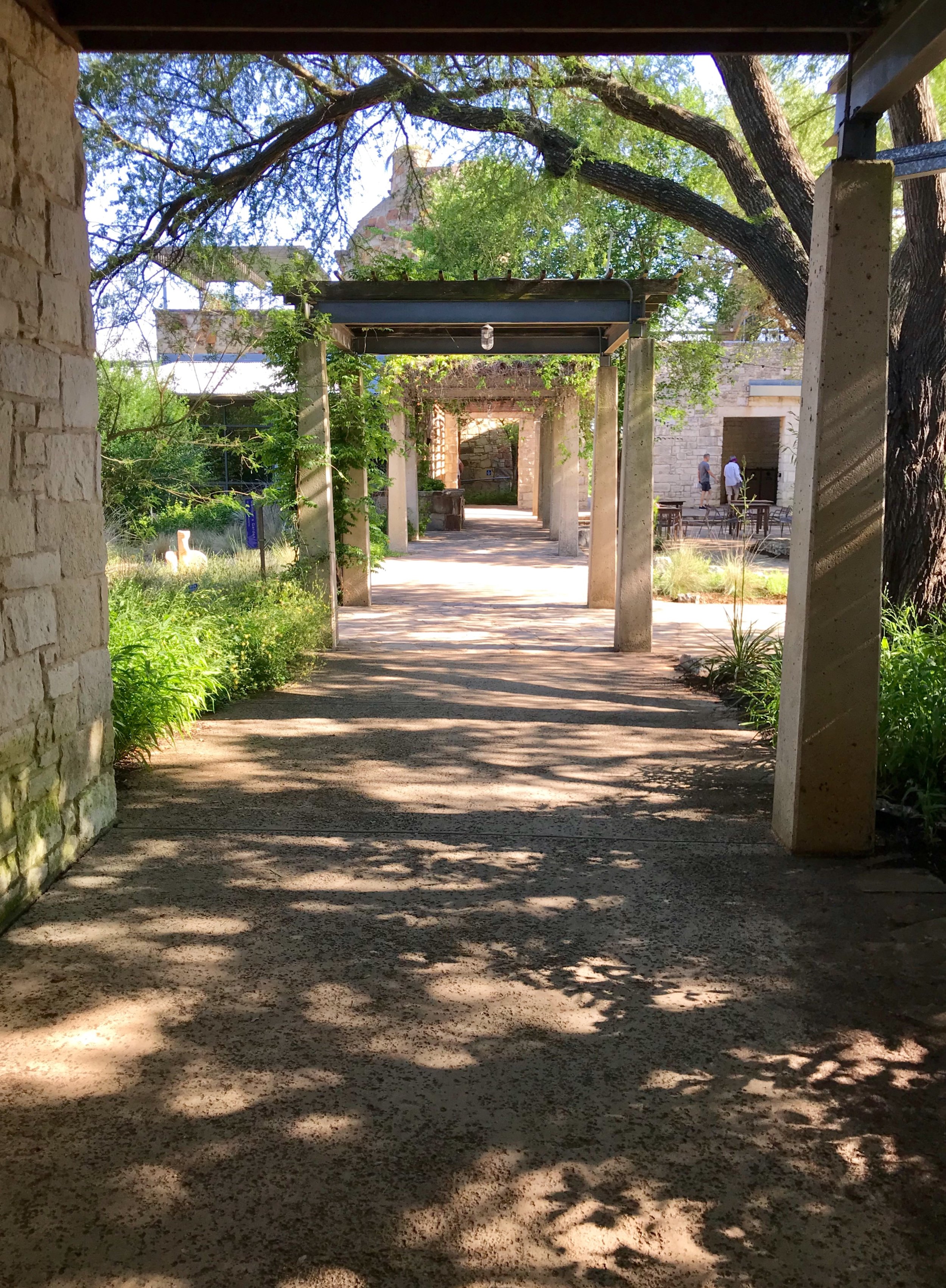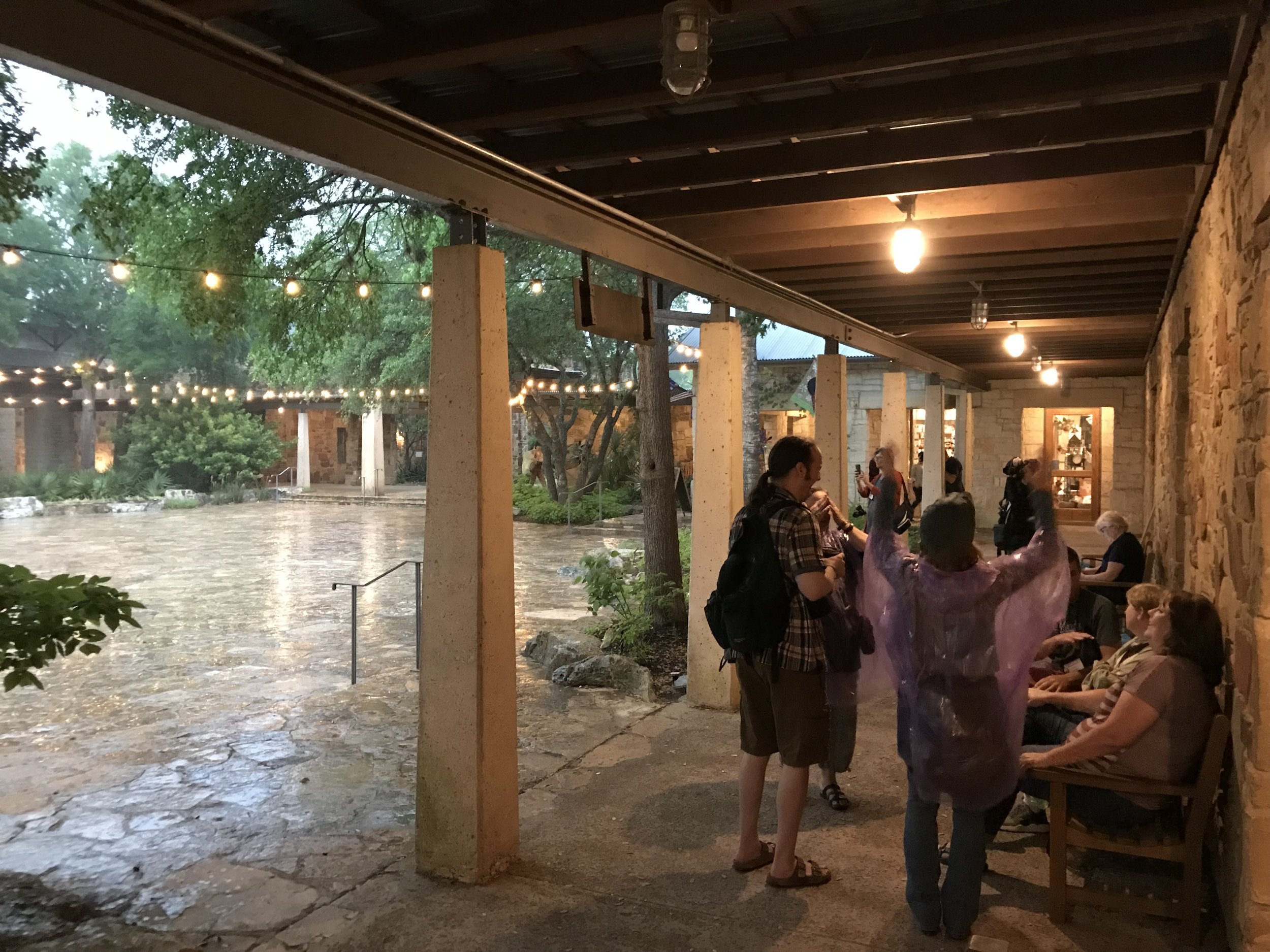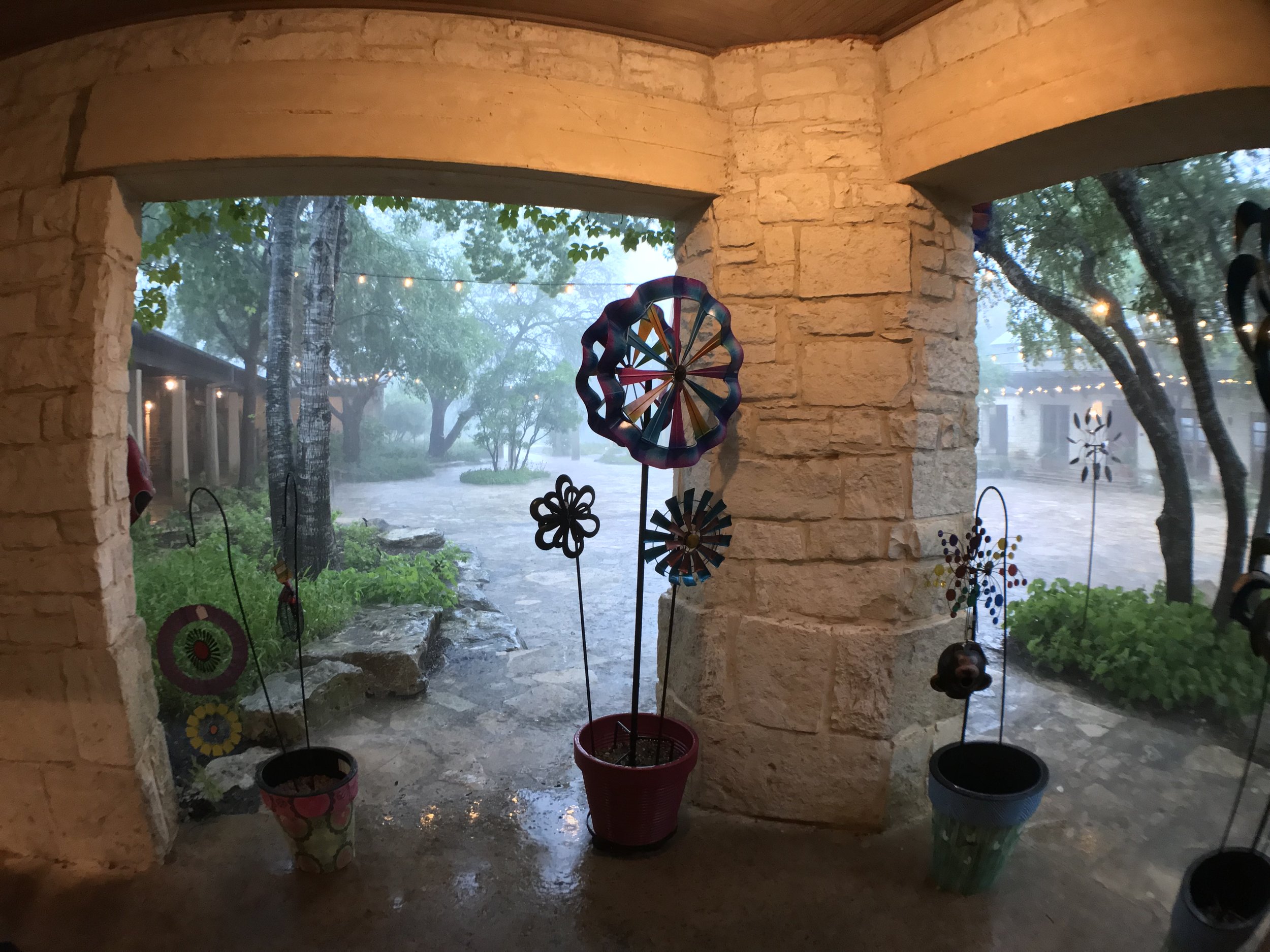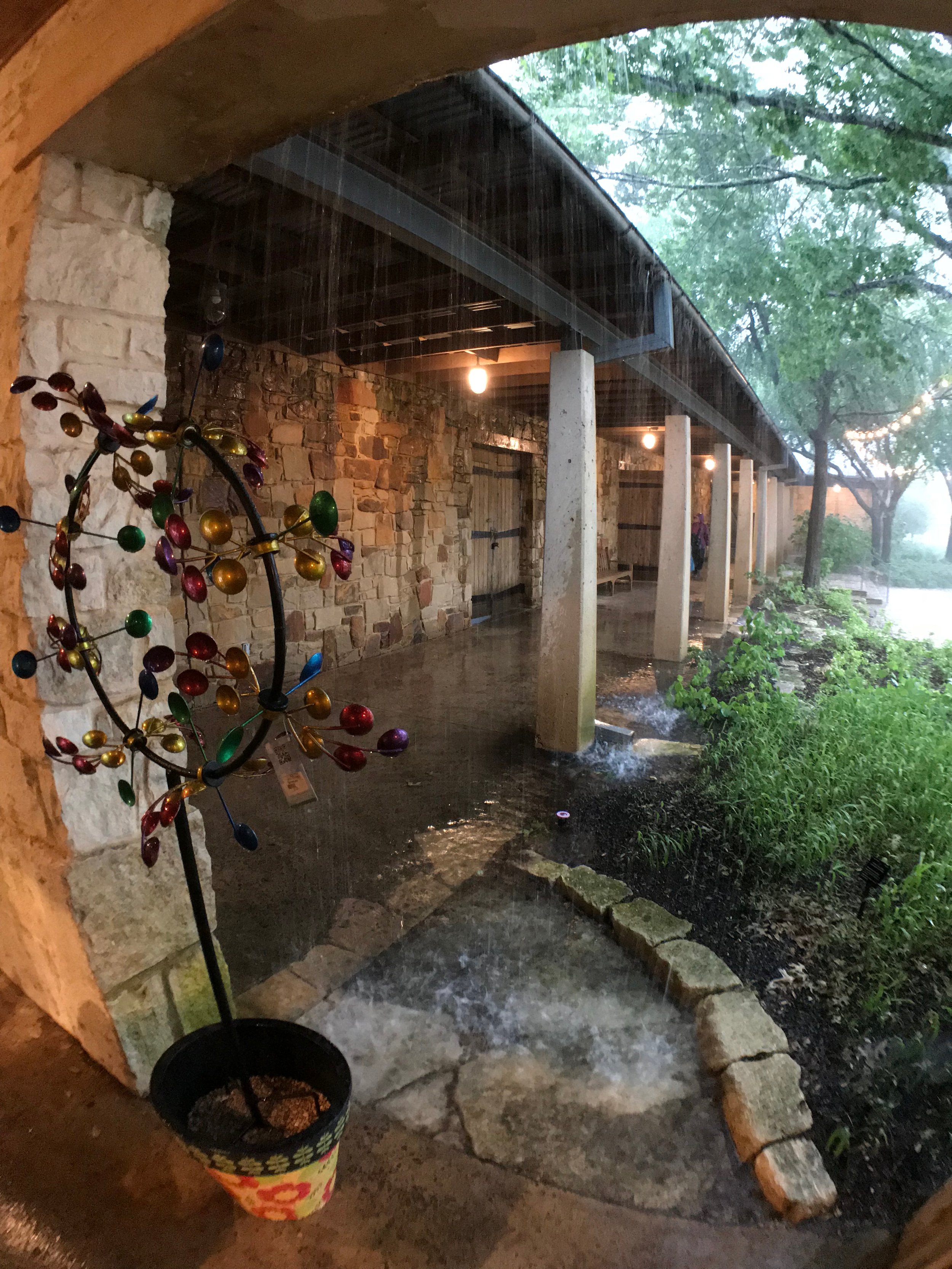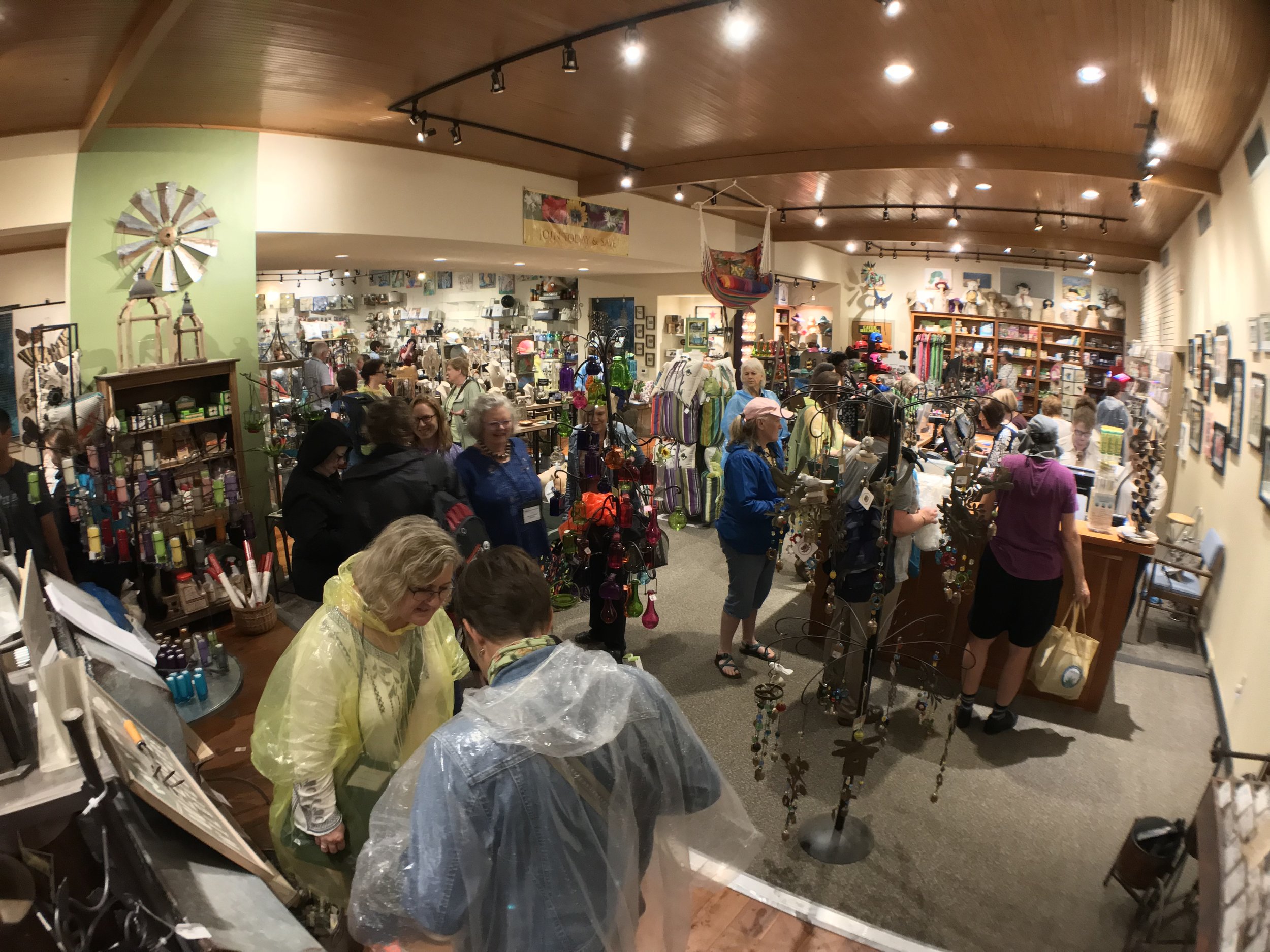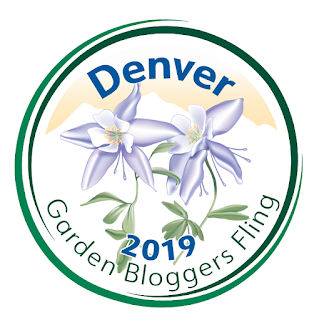Austin: Wildflower Center, part 1 - wild and wooly
/“…[W]e use native plants to restore and create healthy, beautiful landscapes. We carry out our mission to inspire the conservation of native plants through our gardens, research, education, consulting and outreach programs. In doing so, we improve water quality, provide habitat for wildlife and enhance human health and happiness. Visit, learn and make a better world with us.”
I was both nervous and excited for my first day of Austin garden tours, as it was all new to me (the travel, the town, the international bloggers I joined). Additionally, there was a concerning forecast: storm cells with warm temps (upper 70's F) and up to four inches of rain in four hours. I couldn't quite grasp what this might mean. It was early May in Austin TX, the day before the opening of the annual Garden Bloggers' Fling.
To prepare, I used my early arrival day to shop the local outdoor stores, to seek out whatever kind of summer rain gear the locals recommend. (TIP: quick-dry nylon capri hiking pants! And sturdy umbrella, if you need to shoot photos in said weather.)
I packed my day bag with my new gear, camera & batteries for 8 hours, and was as-ready-as-I-was-going-to-be for the mysterious day ahead.
Central courtyard and the "Courtyard Spring" water feature, Lady Bird Johnson Wildflower Center, on deluge day.
I was truly excited to see the Lady Bird Johnson Wildflower Center, the first stop on Day 1 of our tours. The Wildflower Center has earned the highest calibre reputation nationwide, for its education and conservation, and also for its huge botanic garden, a powerhouse in its own right. Co-founded in 1982 by our 36th First Lady, you can feel the love behind her mission to this day.
Upon entering the gardens, you are taken down a grand arrival path that follows a row of columns, reminiscent of Roman aqueduct ruins. This colonnade supports a water channel on top, which collects roof runoff, and directs it toward the cistern tower at the entrance.
You follow the row of arched columns straight into the heart of the garden--a complex of buildings surrounding a central courtyard.
(Entrance journey is between #1 and #5 on this garden map.)
View of the tower cistern from the admissions gate. Overhead channel that would bear runoff water can be seen upper right.
Water channel at the top of a colonnade, like ruins of an ancient Roman viaduct.
For some reason I am smitten with overhead water channels. They completely intrigue me.
Because I didn't get a photo of it on my first day, below is a shot that shows an overall view of the water channel running almost imperceptibly downhill to its destination cistern. I took this photo when we returned to see the Wildflower Center, on a sunnier day. (I'll post that visit's story at a later date.)
Here is the same colonnade walk, on the bloggers' tour day:
It's amazing how the same scene looks so different in different lights & moisture content!
But I jump ahead. In the day's chronological story, it has not yet begun to rain.
Back at 9am...
The full gang arrived, and we gathered for our group photo (taken by one of our fantastic sponsors, Precision Photo).
By the time our photographer quickly snapped his shots, the first raindrops began to fall.
The full conference of the Garden Bloggers' Fling, 10th Anniversary, Austin TX, May 4, 2018.
No one knew how much of the forecast would hit us, or when, but we guessed we had precious time to shoot in this immense public garden. Everyone dispersed every which way. There were several choices of directions to take, and, surprisingly, no one remained in this incredible courtyard, which felt like the heart of the place. I opted to stay within it, and study what made this beautiful "heart" tick.
The large central courtyard is enclosed on three+ sides by a complex of mostly single-story buildings, in the tradition of rural hacienda compounds. Facing the interior, all buildings have covered walkway verandas, which protect its humans from heat and sun, and rain.
The verandas extend out from the buildings, transitioning to pergolas, which blends the architecture into the garden.
The space between
Around the outer edges of this large courtyard, trees and their overhead canopies also act architecturally, so to speak, as they extend the shade and "enclosing comfort" of the porches. Like the verandas, they also blur the line between hardscape and garden.
As a spacial principle, these edges where the veranda and open-sky-courtyard meet, are "a place between." They are the edge between "being inside" and "being outside." In the human psyche, it is a most comfortable place to be, standing in a protected space, and looking out over an expanse. It is both relaxing and stimulating.
These verandas and perimeter trees are also very effective when standing in the middle of the courtyard itself. They soften the hard enclosure and give it depth. Though you are surrounded by paving, the space feels part of the garden.
The courtyard's Texas Mountain Laurel, on rainy morning
One of my favorite of the courtyard's trees was this Texas Mountain Laurel, Sophora secundiflora. With it's multiple trunks and vase shape, it was the perfect size and form. It has its own little island bed--cut out of the courtyard paving. This island bed trick is an underused method of transition and relief--a welcome alternative to plantings strictly along perimeters.
The photo above was taken on our rain-day tour. The photo below was taken from the same spot on my return visit, a few days later, in the sun.
The courtyard's Texas Mountain Laurel, on a sunnier day
Sophora secundiflora (Texas Mountain Laurel) leaves, seeds, bark and trunks
In the middle of the central plaza lies "The Courtyard Spring." (With public display gardens, everything gets a moniker. But it's a man-made feature, not a natural spring.)
Its scale was perfect; the touches of plants around its edges were perfect; its placement in the center and along photogenic axis lines was perfect. Its depths captivated me.
The color of its water was pure and beguiling! My curiosity was piqued as to how they did it, and how they kept it so crystal clear. I am not the only one enamored with this courtyard pool. One of the last gardens on our tour had a pool built in almost exact replica of it. It was gorgeous.
I learned that part of the water feature's gloriousness is due to the native white limestone of the Hill Country (Austin) terrain. The white stone walls have an effect on depth perception, when looking through water.
The Hill Country is famous for its beautiful natural springs and pools. This is all an artistic interpretation of what Nature herself does.
As the morning progressed, it got darker, feeling weirdly like dusk, or dawn. The courtyard's automatic lights came on, which added to the sparkle of the scene.
Eventually my photo studies became too wet. It was time to seek cover.
As the skies more and more opened up, my companions streamed back in, a few at a time. Some of the braver ones had ventured far afield, and got caught in the most rain. Generally, spirits were high. (Our rain-soaked clothes hadn't bothered us too much...yet.)
A video of a few of us, running in from the storm--
VIDEO: Rainstorm, Texas style. May 4, 2018.
Run for cover
The following two photos were taken from the same location as the video--looking out to the veranda walkway where it transitions into a pergola. The first is from my first impression day--and therefore I call it "before." The second, from the day we re-visited on a sunny day--I call "after."
Above--Veranda/walkway "before" (on our tour day).
Below--the same view, "after" (a few days later).
Isn't that fantastic? I love them both.
Our group seeking shelter from the rain, under the central courtyard's porticos.
From here on out, we watched the storm from under cover. Surrounded by the covered porches, there was a lot of room for all of us to spread out (...or so it was in the beginning, anyway, before even these areas got too wet!). Above, showing the attraction of the "space between," with framed views from which to watch an epic storm feed the water-starved ground.
The storm picked up intensity during this hour. Thunder rolled in; the rain and wind intensified.
This puddle, which extends to the house wall, rose to twice this size, by the time we left.
Meanwhile, in the gift shop...
At some point, each of the 93 members of the Garden Bloggers group made it in and out of the Wildflower Center gift shop, during our waiting out the deluge.
Continuing on my 'before and after' theme, here's the last pair. Of this and my other pairs, which do you like better, the photos in the rain, or the photos in the sun?
"Before" - Lori Daul waiting out the deluge.
"After" - Same entry archway in the sun
I'll end with the sounds and feel of the day. If you turn your volume up, you can hear the thunder.
VIDEO: May 4, 2018, about 11 am.
What can I say? I like rain.
Story and photography © Alyse Lansing, 2018, all rights reserved.
I didn't feature too many wildflowers here! To see what was blooming this day, here are a couple of my colleagues' wise and photography-talented posts that saw the Wildflower Center from a different side:
Chickadee Gardens on LBJWC of May 4, 2018
Paintbox Gardens on LBJWC of May 4, 2018
Piece of Eden on LBJWC & rain of May 4, 2018
Succulents and More on LBJWC of May 4, 2018
If you are reading this in an email, you may comment here. Or click on link below if you're in the blog page. I'd love to hear from you!

